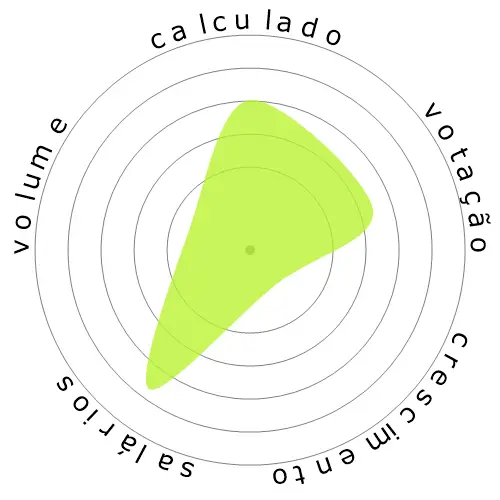Capitães, Comandantes e Pilotos de Embarcações Aquáticas




As pessoas também visualizaram
Risco de automação calculado
Risco Baixo (21-40%): Trabalhos neste nível têm um risco limitado de automação, pois exigem uma mistura de habilidades técnicas e centradas no ser humano.
Mais informações sobre o que é essa pontuação e como ela é calculada estão disponíveis aqui.
Enquete do usuário
Nossos visitantes votaram que há uma baixa chance de esta ocupação ser automatizada. Esta avaliação é ainda mais apoiada pelo nível de risco de automação calculado, que estima 34% de chance de automação.
O que você acha que é o risco da automação?
Qual é a probabilidade de que Capitães, Comandantes e Pilotos de Embarcações Aquáticas seja substituído por robôs ou inteligência artificial nos próximos 20 anos?
Sentimento
O gráfico a seguir é incluído sempre que há uma quantidade substancial de votos para gerar dados significativos. Essas representações visuais mostram os resultados das enquetes dos usuários ao longo do tempo, fornecendo uma indicação importante das tendências de sentimento.
Sentimento ao longo do tempo (anualmente)
Crescimento
Espera-se que o número de vagas de emprego para 'Captains, Mates, and Pilots of Water Vessels' aumente 2,3% até 2033
Emprego total e estimativa de vagas de emprego
As projeções atualizadas são devidas 09-2025.
Salários
Em 2023, o salário anual mediano para 'Captains, Mates, and Pilots of Water Vessels' foi de $ 88.730, ou $ 42 por hora
'Captains, Mates, and Pilots of Water Vessels' receberam 84,6% a mais do que o salário médio nacional, que era de $ 48.060
Salários ao longo do tempo
Volume
A partir de 2023 havia 34.520 pessoas empregadas como 'Captains, Mates, and Pilots of Water Vessels' dentro dos Estados Unidos.
Isso representa cerca de < 0,001% da força de trabalho empregada em todo o país
Dito de outra maneira, cerca de 1 em 4 mil pessoas são empregadas como 'Captains, Mates, and Pilots of Water Vessels'.
Descrição do trabalho
Comandar ou supervisionar as operações de navios e embarcações aquáticas, como rebocadores e ferryboats. É necessário possuir uma licença emitida pela Guarda Costeira dos Estados Unidos.
SOC Code: 53-5021.00


Comentários
Leave a comment
Why it is not happening? Mostly because of money but also the complexity of the problem.
Simple example: Average salary of a Safety Officer is 3000 USD. He is carrying out inspections and maintenance of firefighting equipment and other stuff. To automate only this process company will probably need to spend tens of thousands. Why would they if one can use this money now to scale one's business?
Besides navigation ship's crew has a lot of other critical roles. It will take a lot of scientific effort to set up new safe processes. Most marine companies don't have the necessary resources and infrastructure for that. I won't say a word about the lack of initiative and natural resistance of the industry to everything "new".
However, I also believe that there will always be some humans watching over ships at all times, whether on shore or elsewhere.
Deixe uma resposta sobre esta ocupação